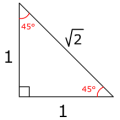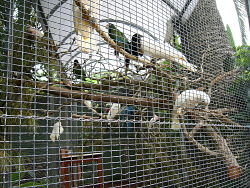22 - I Know, Because the Caged Bird Sings: Plato's Theaetetus
Peter examines Plato’s "Theaetetus", discussing the relativist doctrine of Protagoras, the flux doctrine of Heraclitus, and the two famous images of the wax tablet and aviary.
Themes:
D. Bostock, Plato’s Theaetetus (Oxford: 1988).
M.F. Burnyeat, The Theaetetus of Plato (Indianapolis: 1990).
M.F. Burnyeat, “Protagoras and self-refutation in Plato’s Theaetetus,” in S. Everson (ed.), Companions to Ancient Thought I: Epistemology (Cambridge: 1989), 39-59.
G. Fine, “False Belief in the Theaetetus,” Phronesis 24 (1979), 70-80.
G. Fine, “Protagorean Relativisms,” Boston Area Colloquium in Ancient Philosophy 19 (1996), 211-243.
J. McDowell, Plato: Theaetetus (Oxford: 1973).
R. Woolf, "A Shaggy Soul Story: How Not to Read the Wax Tablet Model in Plato’s Theaetetus," Philosophy and Phenomenological Research 69 (2004), 573-604.







Comments
Knowledge vs belief
I'm really enjoying this podcast, thank you for creating it. This episode hit on something I have given some thought to prior to discovering this podcast I think that knowledge is something you can choose to seek. Belief in a thing, is something you either have or you do not. You can't choose to believe in something. The two are related but not the same thing. So I guess the next question might be, if I have knowledge, do I believe it? I think so. If I don't, it's just a suspect fact in my mind.
In reply to Knowledge vs belief by Philip McBride
Belief
Well, I would follow you part way there. I think it is plausible that you cannot just choose to believe something, simply by deciding to do so, because beliefs respond to evidence and reasons. But you can certainly inquire, like, if I want to form a belief about whether my brother is in the next room, I can go look. So you can decide to put yourself in a position to acquire good reasons to believe something and if the reasons are good enough, you can also acquire knowledge. So it's not like we just passively and helplessly believe whatever we believe: rather we are responsible for making sure to form beliefs about things that matter, and on the basis of good evidence. (So for instance, conspiracy theorists are not just victims of bad luck: they have been following bad policies about how to form their beliefs.)
Add new comment